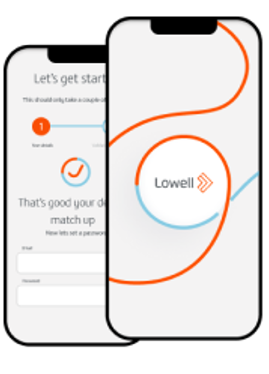Free Independent Debt Advice & Support
The first step towards getting help with your debt is to talk to us.
If you feel like you need a little extra support or advice, there are lots of organisations who can help you. The following organisations provide support across a number of areas, including care, legal support, and mental health.
MoneyHelper is an initiative set up by the government to help people manage their money better.
Mind are a mental health support charity who help people get the advice and support they need.
Age UK is a charity that helps older people and their carers. They provide advice on lots of subjects for free, including money management, benefits and pensions.
Meet our app
We've made taking control of your finances simpler than ever. With an app that puts the power to understand and manage debts in your hands.

Check your credit score
Get access to your TransUnion credit score for free. We'll also help you understand your score, what it means for your finances and show you personalised tips on how to improve it.







